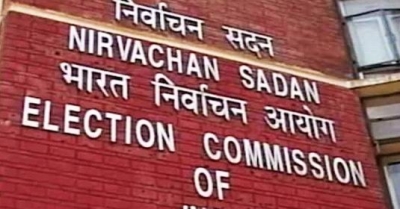The Congress on Thursday expressed its objections to the Election Commission proposal inviting political parties to observe the functioning of a prototype Multi-Constituency Remote Electronic Voting Machine on January 16, 2023 and to make written submissions by January 31, 2023.
“The migration based disenfranchisement is indeed not an option in the age of technological advancement. The voter turnout in General Elections 2019 was 67.4 per cent and the Election Commission of India is concerned about the issue of over 30 crore electors not exercising their franchise and also differential voter turnout in various states/UTs,” the commission said.
The ECI said that there are multifarious reasons for a voter not opting to vote in a new place.
“Inability to vote due to internal migration (domestic migrants) is one of the prominent reasons to be addressed to improve voter turnout and ensure participative elections. Although there is no central database available for migration within the country, the analysis of available data in public domain points to work, marriage and education related migration as important components of domestic migration,” it said.
The ECI team has deliberated at length to find inclusive solutions to facilitate electoral participation of migrants across all socio-economic strata and explored alternative voting methods like two-way physical transit postal ballots, proxy voting, early voting at special Early Voting Centres, one-way or two-way electronic transmission of postal ballots (ETPBS), Internet-based voting system.
Congress cites German court verdict
In its reaction to the remote voting system, Congress said, “Trust in the electoral system is paramount for democracy to function. The German Federal Constitutional Court struck down Electronic Voting Machines (EVMs) in Germany in 2009 because the opacity of the machine cannot give a voter the confidence that his or her vote is being correctly recorded.
“In spite of their widespread use, EVMs have aroused much controversy in India. Unfortunately, fears of their misuse have not been systematically addressed. Voters and parties must have confidence in the electoral system. However, this trust has been repeatedly violated in recent years on account of pressure being put on the Election Commission of India by the (Narendra) Modi government,” Congress General Secretary, in charge of communication, Jairam Ramesh said.
He said the most recent examples was the Election Commission delaying the announcement of the election schedule in Gujarat to give PM Modi more time for electioneering in his home state. “It also gave him yet another free pass to violate the model code of conduct by allowing a road show on voting day in Gujarat, ” he said.
Suspicious voting in last hour
“On issue after issue, our representations to the Election Commission result in no action. In Gujarat this time we also saw suspicious voting numbers which showed that 10-12 per cent of voters cast their votes in the last hour of voting. This translates into an impossible 25-30 seconds being taken to cast each vote. You need a minimum of 60 seconds to cast a vote.
“Now imagine if these suspicious patterns can be extended via a multi-constituency voting machine to other locations. This would seriously undermine trust in the system,” he added.
Ramesh said the Congress has made constructive suggestions in the past to increase confidence in the voting process by expanding the number of booths in which Voter Verifiable Paper Audit Trail (VVPAT) slips are counted. However this has also not been accepted.

